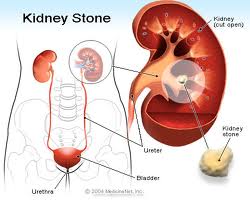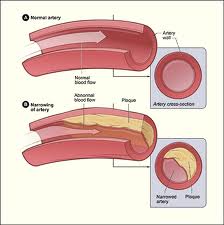
Calcium is a very important mineral that comes from many food sources that are rich in calcium such as broccoli, spinach, orange juice and dairy products. Calcium can also be taken in the form of antacids and supplements. It is important to add vitamin D to our diet in order for the body to absorb calcium efficiently, as many people suffer from calcium deficiency, however excess calcium in the body is a rarity and is equally dangerous.
Calcium is vital in maintaining healthy bones and teeth. It is particularly beneficial in women that are tackling postmenopausal issues and premenstrual symptoms as it provides relief. The possibility of excess intake of calcium can happen occasionally more so because of supplements that can cause the calcium levels in the blood to rise. This excess calcium in the body can result in various disorders and side effects from milder symptoms like nausea, vomiting to serious ailments like kidney stones and renal damages.
Tremors
Tremors are uncontrollable and involuntary shaking of the body which can affect any one part of the body. The feet and legs are rarely affected by tremors, however, in certain cases tremors might strike the entire body. Tremors can also be a result of some other medication that you might be taking, so it is safe to consult a doctor before coming to any conclusion. Certain blood pressure medicines also interfere with the absorption of calcium, leading to intense tremors. The daily consumption of calcium should not be more than 2500 mg in a day. If you feel that you have exceeded the daily dosage of calcium accidentally, then immediately get in touch with your doctor or dial for emergency medical assistance.
Reduces iron absorption
Excess calcium in the body prevents iron from getting absorbed by the body. This can result in acute anemia in women due to low hemoglobin levels. Iron is extremely important for transportation of oxygen throughout our body and its absorption is impaired if we have excess calcium in our bodies. Iron is extremely important for women who are going through menopause and for those who undergo menstruation cycles. Hence, exceeding the normal prescribed intake of calcium can most definitely lead to iron deficiency as well.
Kidney problems due to hypercalcemia
Too much calcium in the blood can also lead to a hypercalcemia that has symptoms such as loss of appetite, fatigue, persistent thirst and vomiting. All this can have an adverse impact on the kidney functions. The excess calcium in the body can lead to stone formation in the kidney due to high levels of urinary calcium. The role of the kidneys is to filter out all the excess calcium that is unused by our bones. However, if there is an abnormal amount of calcium that the body cannot handle, then it eventually deposits in the form of kidney stones, apart from disrupting the functioning of the kidney leading to other issues.
Renal damage
Another serious side effect of excess calcium in the body is renal damage due to the formation of renal stones in the part of the kidney that collects the urine also known as the renal pelvis or urethra. Due to calcification, some of the kidney stones may pass inside the urinary tract and then get stuck there causing acute pain to the person. Renal stones can obstruct your kidneys and prevent them from getting rid of the waste materials. Furthermore, some stones have edges that are rough and sharp, which can cause damage and scarring to the renal area too. The renal stone can also block the flow of urine leading to tear in the urinary tract and bleeding. In such cases, immediately consult your doctor for help. In extreme cases, when the kidneys have been adversely impacted, this can also lead to renal failure.
Calcification in other body parts
Another symptom of excess calcium in the body is calcification or abnormal calcium deposits. Our kidneys play the role of filtering out an eliminating excess calcium and phosphorus from the body. However, an abnormal increase of calcium in the body can disrupt the functioning of the kidneys leading to calcification in different parts of the body which is a serious health problem. Calcification can occur on the soft tissues, blood vessels leading to a blockage in blood flow. A disruption in blood circulation can lead to painful joints, lung and heart disease. Excess of calcium in the blood can cause plaque to accumulate on the arteries that can impact the heart muscle leading to the probability of heart attack. Excess calcium has also been linked to prostrate cancer.
Constipation
One of the most common and prevalent side effects of excess calcium in the body is constipation. Constipation is a condition when a person has less than three bowel movements in a week. The stool is dry and hard and causes a lot of discomfort. Constipation is normally the side effect of taking too many calcium supplements that is accompanied by gas and intestinal bloating as well. Hence, if you are on calcium supplementation, then increase liquid and fiber intake which might relieve you from acute constipation. In fact, you should refrain from taking calcium supplements altogether.
Stomach problems
One of the most common symptoms of excess calcium which is both annoying and embarrassing is flatulence or gas formation. The calcium inside the body leads to a feeling of being bloated. This is a very mild side effect of excess calcium as there can be other serious stomach problems as well such as abdominal cramping, vomiting and nausea. Taking calcium in the form of supplements such as calcium carbonate has these symptoms as side effects as well.
Changes in heart rate
Having excess calcium in your blood can also adversely impact your heartbeat, as the electrical impulses of the heart that are responsible for controlling the heart rhythm get disrupted leading to heart problems and even heart attack.
Excess calcium in the body leads to hypercalcemia which, in severe cases, can cause the brain to malfunction. This can manifest itself in various forms like emotional disturbances, hallucinations, confusion, delirium and coma. These brain issues can be resolved with appropriate hydration and the dropping of blood calcium level to normalcy. Calcium is very important for vital body functions that include the transmission of nerve impulses and exceeding calcium level in the blood can disrupt the function leading to malfunctioning which can be extremely life threatening. In milder cases, the disruption in the nervous system can lead to mild concentration problems and confusion and if untreated, it can lead to coma, fits, uncoordinated muscles, hallucinations and even death.



